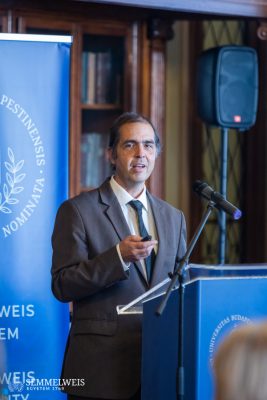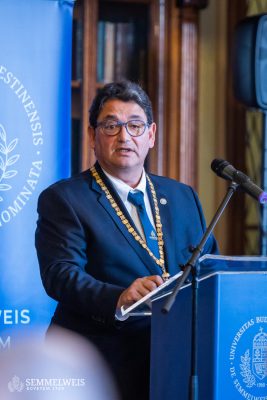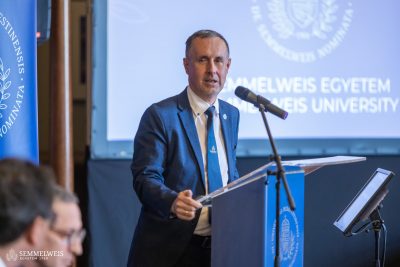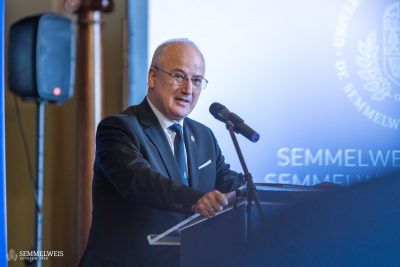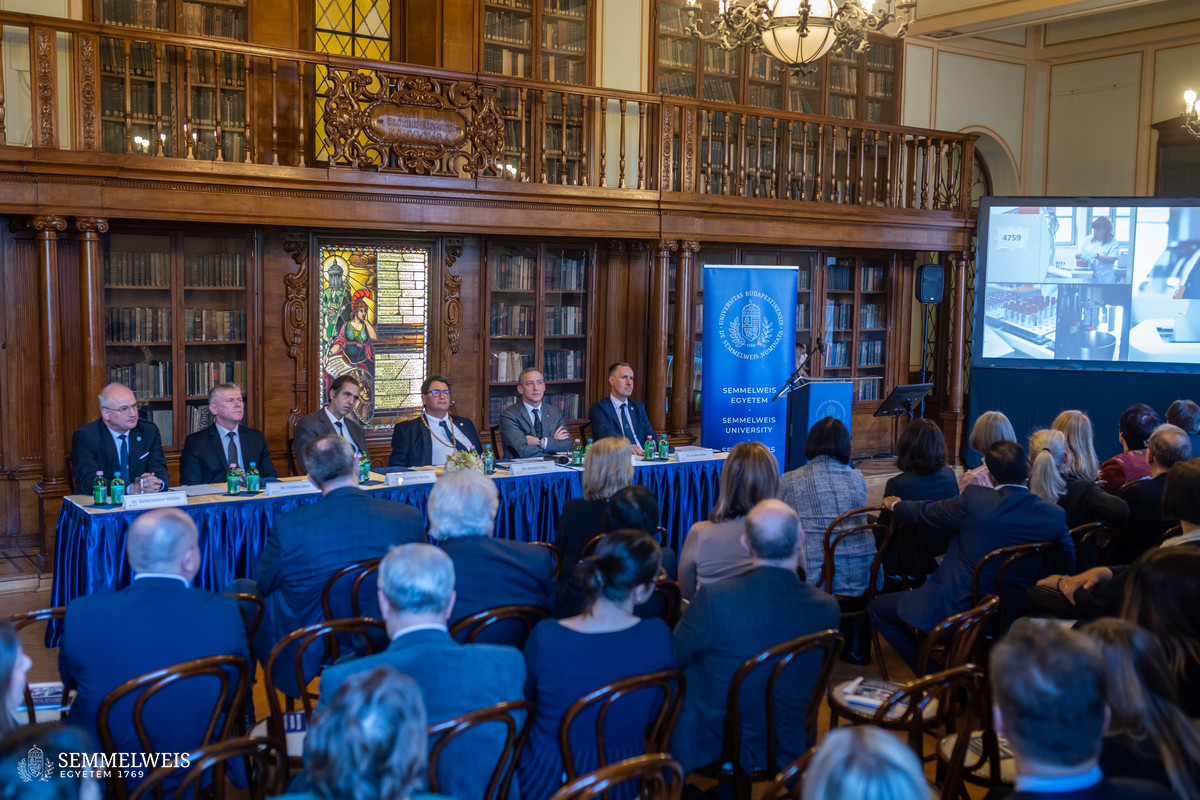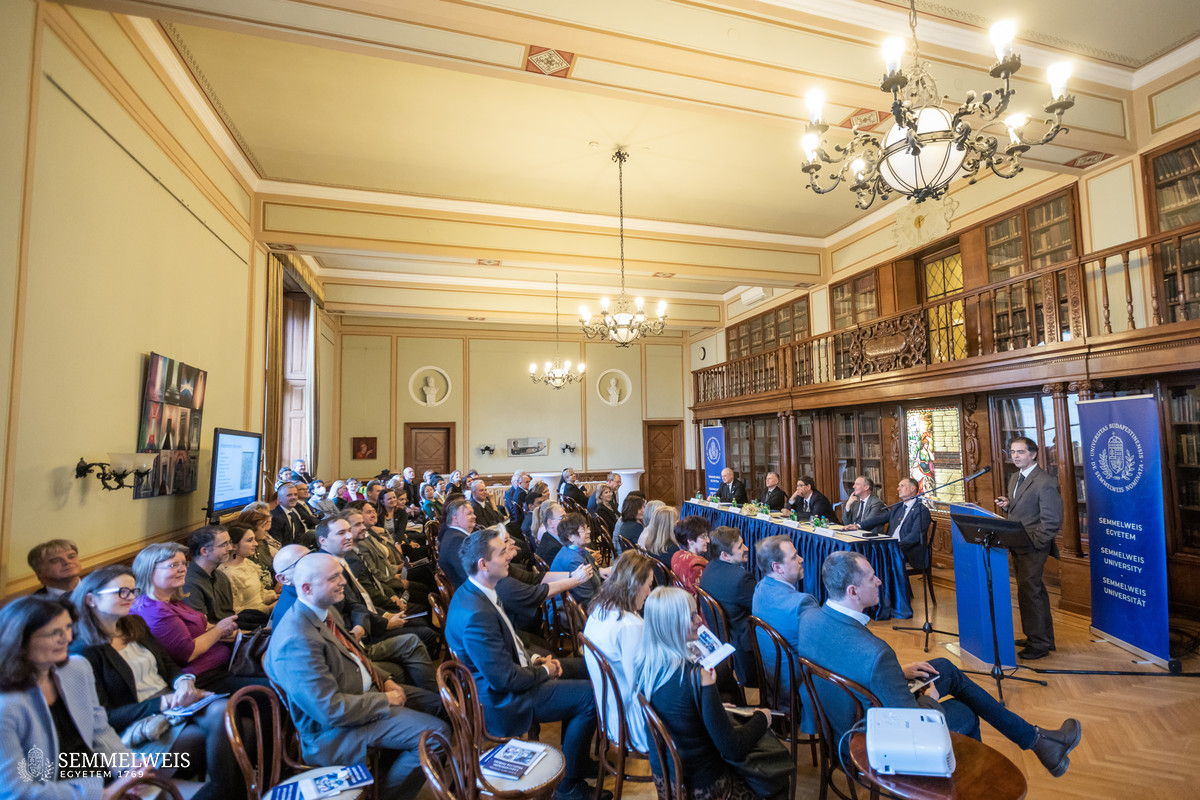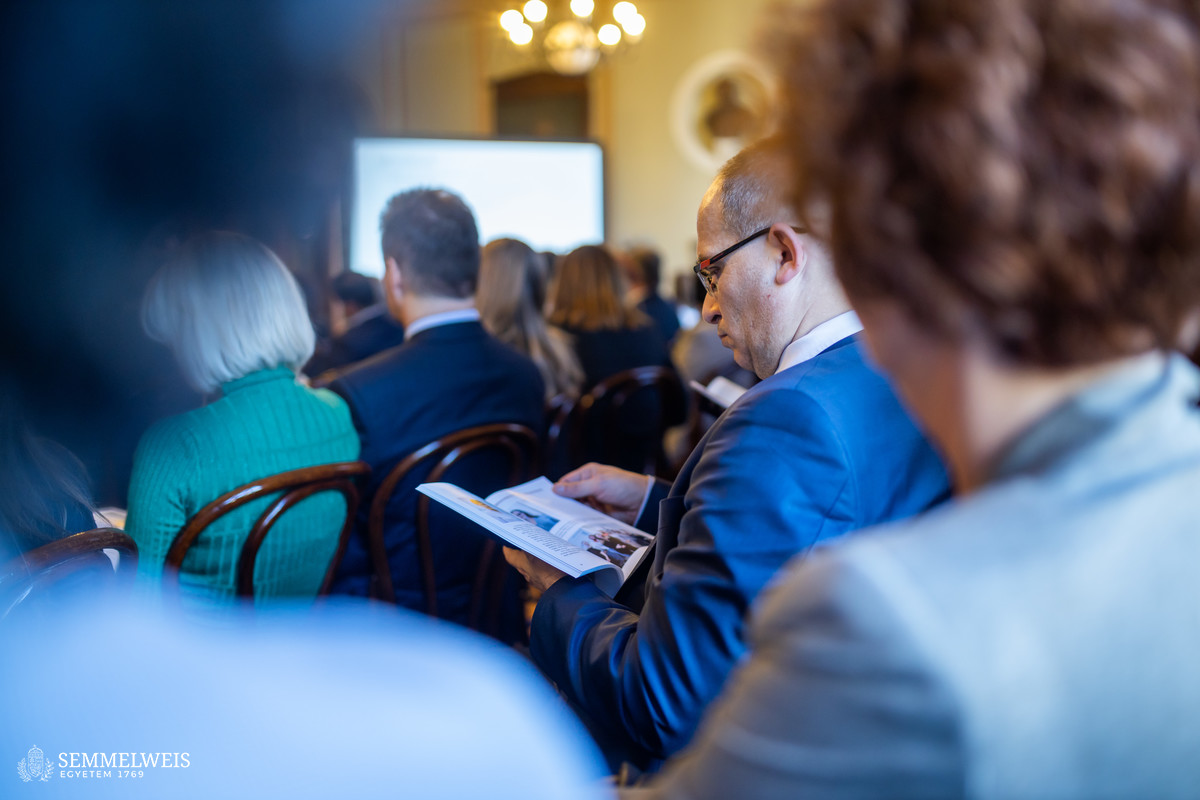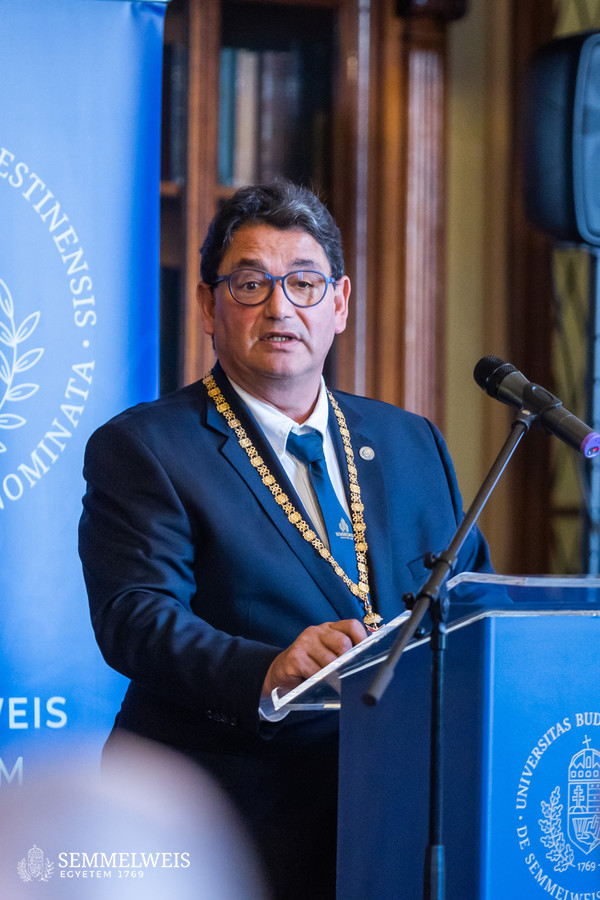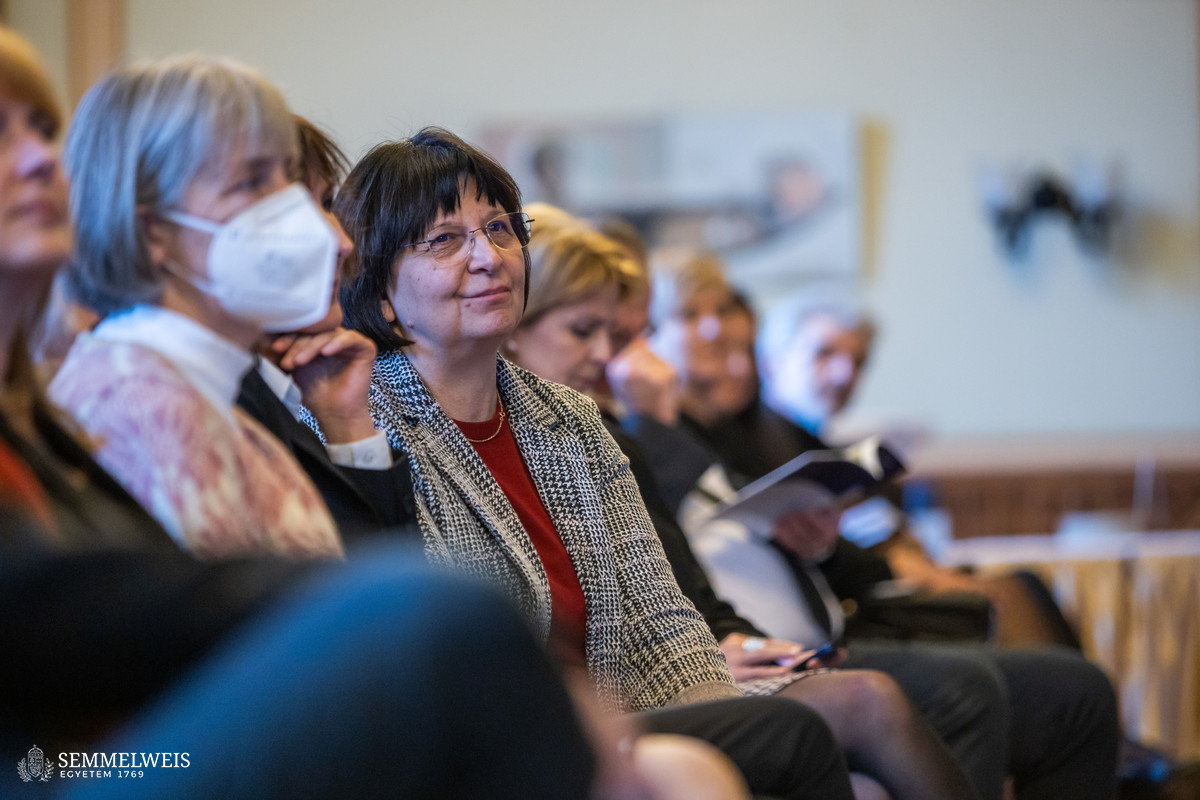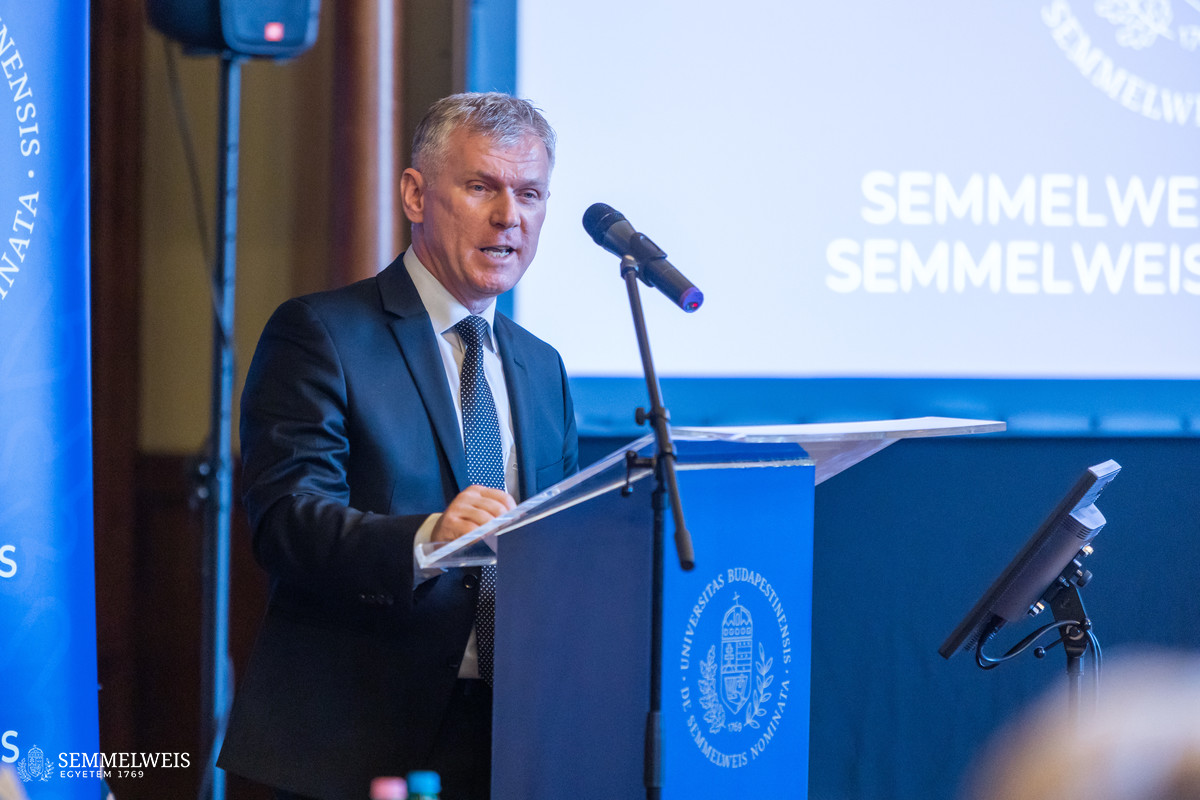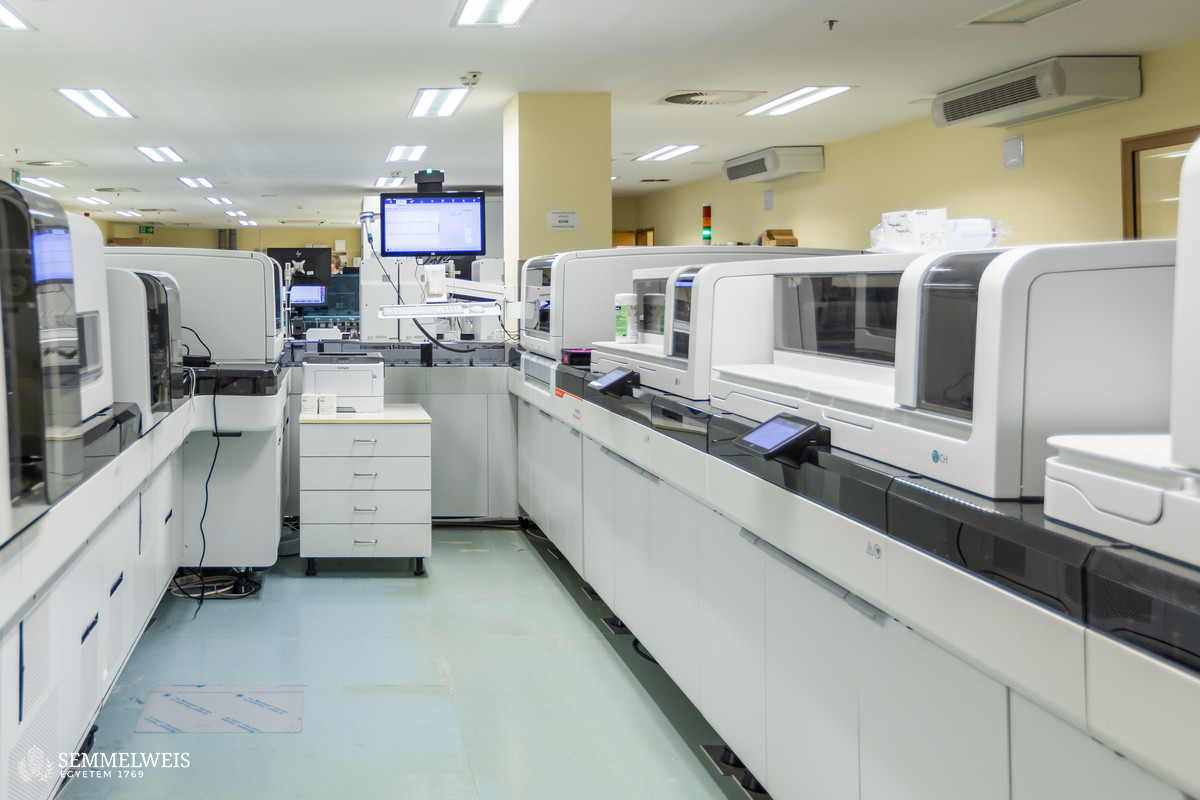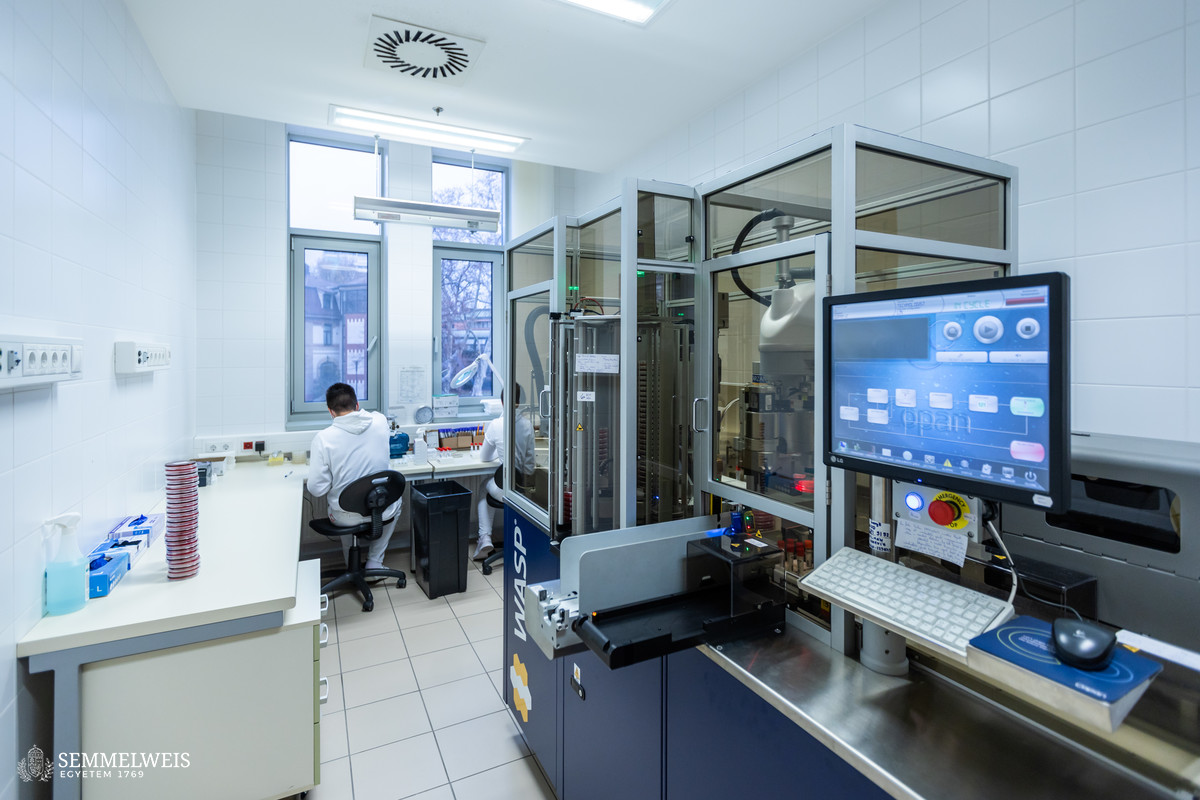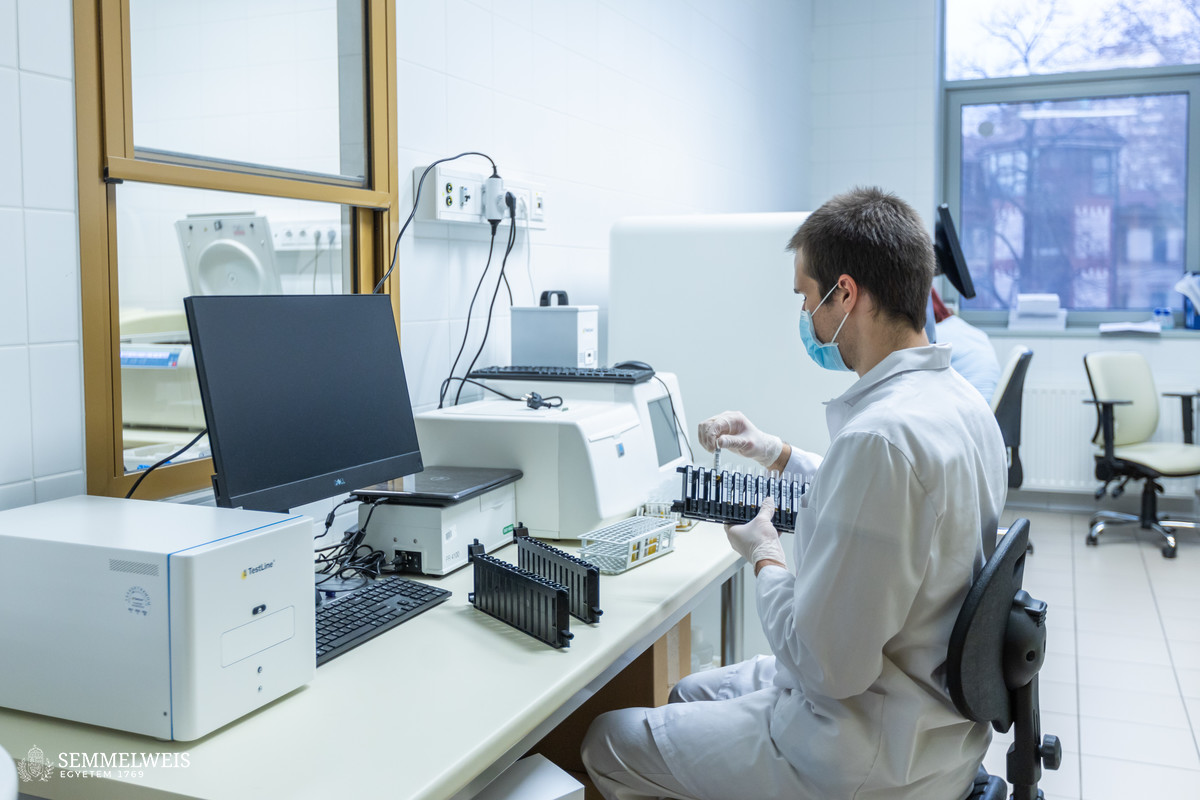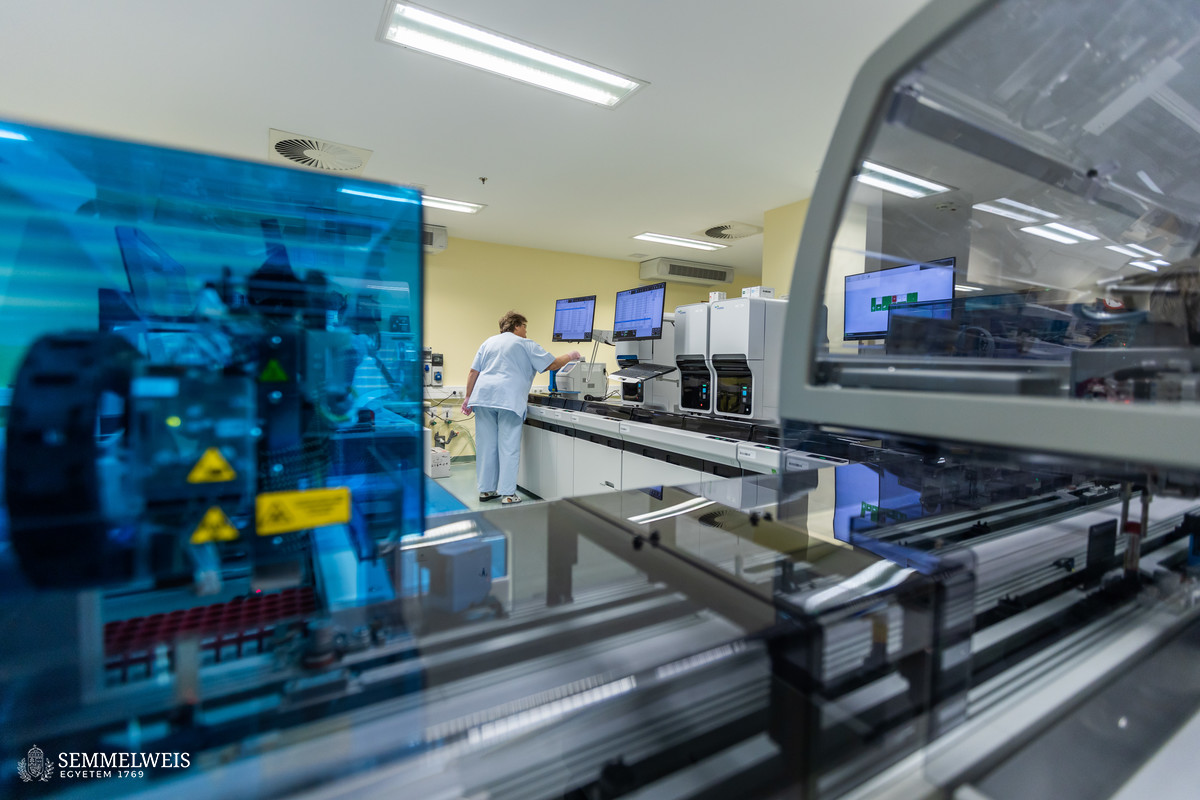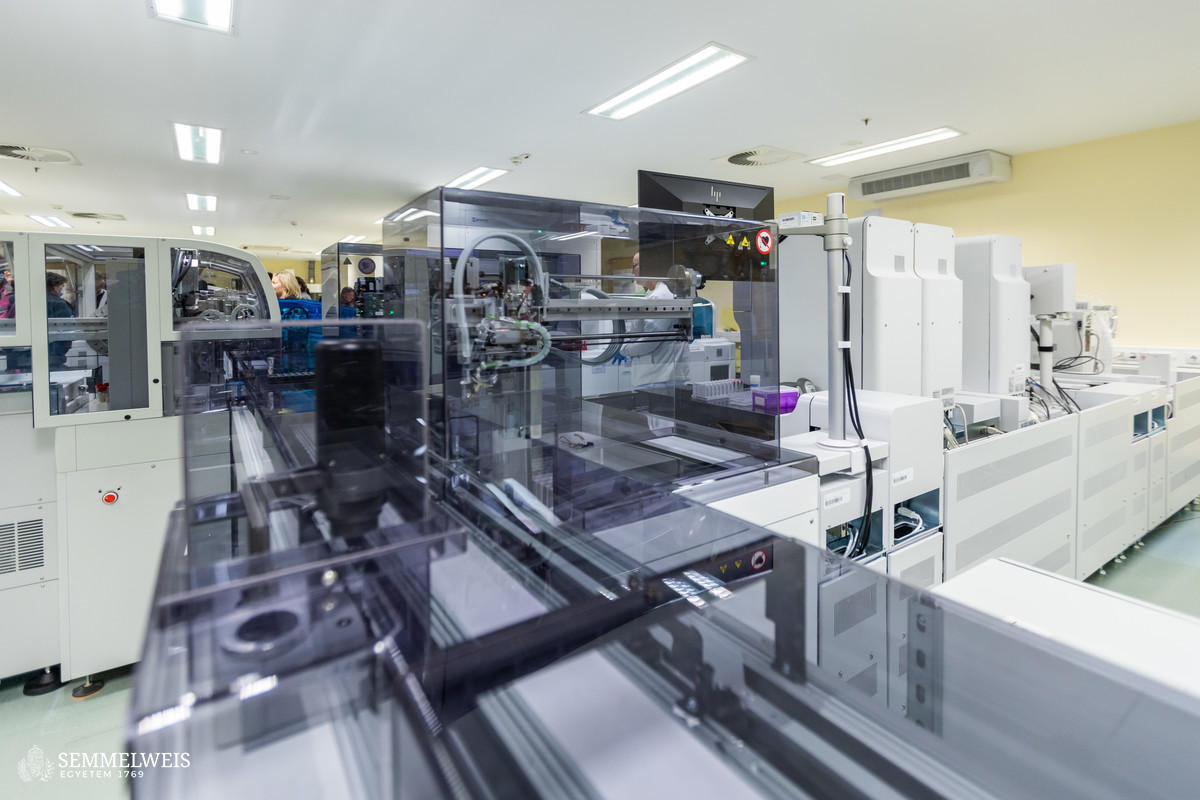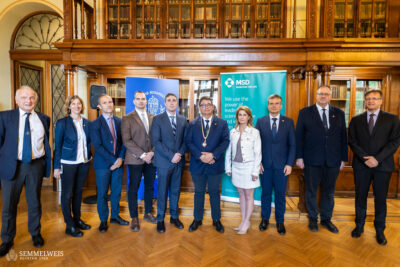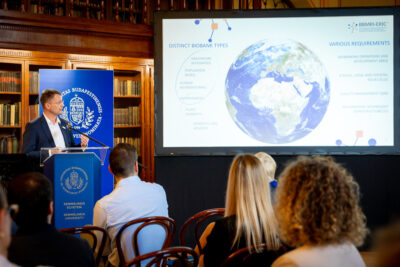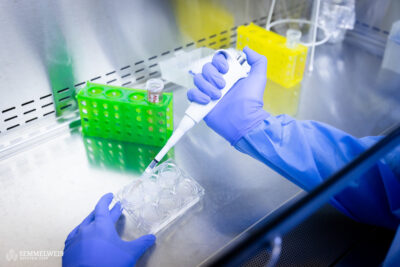In his welcome speech, Dr. Barna Vásárhelyi, Director of the Institute of Laboratory Medicine, said that they have about 140 employees and perform millions of tests annually, providing 5% of the laboratory services in Hungary. “Currently, they work in 8 different sites: 3 laboratories in the Korányi Block, the Theoretical Block in Nagyvárad Square, the Department of Surgery, Transplantation and Gastroenterology, the Rókus Hospital and the laboratory in the 2nd Department of Paediatrics,” he added. Besides the continuous intensive movement of materials, exchange of samples and sharing of tests between the laboratories, they are also involved in education and research, he stressed. Dr. Barna Vásárhelyi also pointed out that in the last five years, thanks to the available funds, a number of innovations and improvements have been made: the laboratories have been renovated and modern equipment has been acquired, which currently provide 80% of the laboratory functions with new laboratory systems.
In his welcome speech, Dr. Béla Mekely, Rector of the University, emphasized that the role of laboratory medicine has become particularly important in recent years.
He pointed out that initially the difficulty was caused by the combined running of many laboratories, but now the amount of work required to provide the essential care needed in the day-to-day running of the clinic, and the considerable scientific work that is also being done at the institute. He highlighted the role of the Institute of Laboratory Medicine in the HUNCOVER study, the high number of tests carried out during the COVID, which contributed to Semmelweis University’s outstanding performance in the fight against the pandemic. The Rector stressed that the university’s management has supported and will continue to support the developments, as the institute has a dual function: it is essential for everyday patient care and for supporting serious scientific issues.
Dr. Attila Szabó, Vice-Rector of the University, emphasized that the Institute of Laboratory Medicine is outstanding for the University’s clinics and the colleagues working there.
“The Institute meets the challenges of 21st century medicine, providing routine and less frequent tests, microbiological examinations for our clinics, beyond the walls of the University: the Institute of Laboratory Medicine provides this service to many external providers,” he added. “The improvements made in recent years, the full laboratory automation, the development of specialized machinery and the creation of a nationally unique testing portfolio are integral to the objectives of Semmelweis University. I am confident that this process will continue today, helping clinicians and patients to improve their work,” he stressed.
Dr. Miklós Kellermayer, Dean of the Faculty of Medicine, said of his personal relationship with laboratory medicine that he absorbed it almost with breast milk and had been able to follow the development, recovery and evolution of clinical chemistry, clinical biochemistry and then clinical laboratory medicine.
“Laboratory medicine is much more than a service unit, it gives an approach: the approach that the sample from the patient is a snapshot of the patient’s fate, molecular, chemical, biochemical, biophysical, physiological, pathophysiological status. Through this, it provides insights for both doctors and students at the university. The latest developments are milestones in the development of clinical, chemical and laboratory medicine in Hungary,” he added.
After the welcome speeches, a film about the Institute’s work was shown, followed by professional lectures. Dr. Ibolya Kocsis presented the developments of the Central Laboratory of Pest, Dr. Katalin Kristóf of the Microbiology Laboratory, Dr. Zsuzsanna Beleznay of the Immunology Laboratory, Dr. Marina Varga presented the special tests of the Laboratory of the Department of Surgery, Transplantation and Gastroenterology, Dr. Éva Imreh of the Rókus Hospital, Dr. Attila Patócs gave a presentation on the work of the Endocrine Tumour Research Group, Dr. Balázs Karvaly Gellért on pharmacokinetic studies supporting individualized treatments, and Krisztián Kovács presented the work of the teaching laboratory.
Péter Pogrányi, translated by Rita Kónya, Gábor Kiss
Photo: Bálint Barta – Semmelweis University
